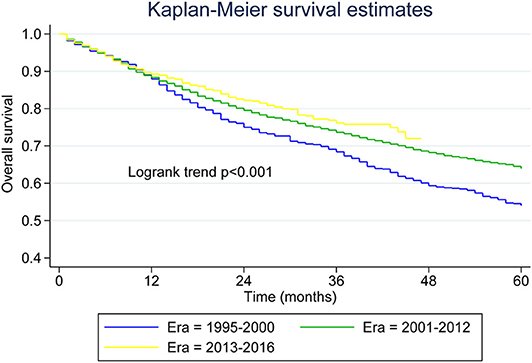Mantle cell lymphoma is a rare type of blood cancer that can rapidly progress and spread to other organs. While the prognosis for this condition is not always positive, there are treatments available that may prolong life expectancy. In this article, we will discuss what mantle cell lymphoma life expectancy is, what factors affect it, and how treatments may help.
Mantle cell lymphoma (MCL) is an uncommon form of non-Hodgkin lymphoma (NHL) that is considered to be an aggressive type of cancer. The life expectancy for MCL varies depending on the stage at diagnosis and the treatment used, but on average is around 5-7 years.

Contents
What Is Mantle Cell Lymphoma (MCL) Life Expectancy?
Mantle cell lymphoma (MCL) is a rare form of non-Hodgkin’s lymphoma which is typically found in adults over the age of 60. It is a type of cancer that affects a particular type of white blood cell known as B-cells. While MCL is an aggressive form of cancer, it is also very treatable and many patients can live for many years after diagnosis. The life expectancy of MCL patients varies greatly depending on a number of factors, including the stage of the disease, the type of treatment received, and the patient’s overall health.
Staging of Mantle Cell Lymphoma
The stage of MCL is determined by the size and location of the tumor, as well as the number of affected lymph nodes and organs. Generally, the earlier the stage, the better the prognosis. For example, patients with stage I MCL have a median survival time of nearly eight years, while those with stage IV MCL have a median survival time of two to three years.
Mantle Cell Lymphoma Treatment Options
Treatment for MCL is typically determined by the stage and type of the cancer, as well as the patient’s overall health. The most common treatment options include chemotherapy, radiation, and stem cell transplants. In some cases, surgery may also be used to remove the tumor. The response to treatment varies from patient to patient, but generally, those who receive treatment have a better prognosis than those who do not.
Factors Affecting Mantle Cell Lymphoma Life Expectancy
In addition to the stage and type of MCL and the type of treatment received, there are other factors that can affect the life expectancy of MCL patients. These include the patient’s age, overall health, and lifestyle. Older patients and those with other health conditions may have a shorter life expectancy than those who are younger and healthier. Additionally, lifestyle choices such as smoking and drinking can also affect life expectancy.
Mantle Cell Lymphoma Clinical Trials
Patients with MCL may be eligible for clinical trials, which can provide access to new treatments and medications that may not be available elsewhere. Clinical trials can also provide additional information about the disease and its prognosis. However, these trials can be risky and should only be undertaken with the guidance of a medical professional.
Mantle Cell Lymphoma Support Groups
In addition to medical treatment, there are also a number of support groups available for MCL patients and their families. These groups can provide emotional and practical support, as well as a source of information about the disease and its treatment. Support groups can be found online, in local hospitals, and in other locations.
Mantle Cell Lymphoma Life Expectancy: Summary
The life expectancy of MCL patients can vary greatly depending on a number of factors, including the stage of the disease, the type of treatment received, and the patient’s overall health. However, with appropriate treatment and lifestyle choices, many MCL patients can live for many years after diagnosis. Additionally, clinical trials and support groups can provide information and emotional support for MCL patients and their families.
Related Faq
What Is Mantle Cell Lymphoma?
Mantle cell lymphoma (MCL) is a cancer of the B-lymphocytes, a type of white blood cell. MCL is a type of non-Hodgkin lymphoma, a group of cancers that develop in the lymphatic system. MCL is an aggressive, but treatable form of cancer.
What Causes Mantle Cell Lymphoma?
The exact cause of MCL is unknown. It is believed to be a combination of genetic and environmental factors. Mutations in the B-cell receptor that can cause MCL can be inherited, acquired, or both. Other factors that may increase the risk of developing MCL include exposure to certain chemicals, such as pesticides and herbicides, and certain viruses, such as HIV and Epstein-Barr virus.
How Is Mantle Cell Lymphoma Diagnosed?
Mantle cell lymphoma can be difficult to diagnose because the symptoms are often similar to other types of lymphoma or other illnesses. The diagnosis typically begins with a physical exam and a review of the patient’s medical history. Further tests may include a blood test, biopsy, imaging tests, and/or endoscopic procedures.
What Are the Treatments for Mantle Cell Lymphoma?
Treatment for mantle cell lymphoma depends on the stage of the cancer and the patient’s overall health. Options may include chemotherapy, radiation therapy, or a combination of both. Other treatments may include stem cell or bone marrow transplantation, targeted therapy, and/or immunotherapy.
What Is the Mantle Cell Lymphoma Life Expectancy?
Mantle cell lymphoma is an aggressive form of cancer, and the prognosis can vary widely. The median survival rate for MCL is 3-4 years, but some individuals may live for many years with the disease.
What Are the Possible Complications of Mantle Cell Lymphoma?
The treatment of MCL can cause side effects and complications, such as nausea, fatigue, hair loss, anemia, and infection. Other potential complications include organ damage caused by radiation or chemotherapy, and secondary cancers caused by treatments. It is important to discuss the potential risks and side effects of treatment with a healthcare provider.
What is the prognosis for Mantle Cell Lymphoma?
Mantle Cell Lymphoma is a rare, but serious form of cancer that affects the lymphatic system. While the life expectancy for MCL patients varies depending on a number of different factors, it is important to remember that early detection and aggressive treatment can improve survival rates and quality of life. With proper treatment and care, MCL patients can live long, healthy and happy lives.








